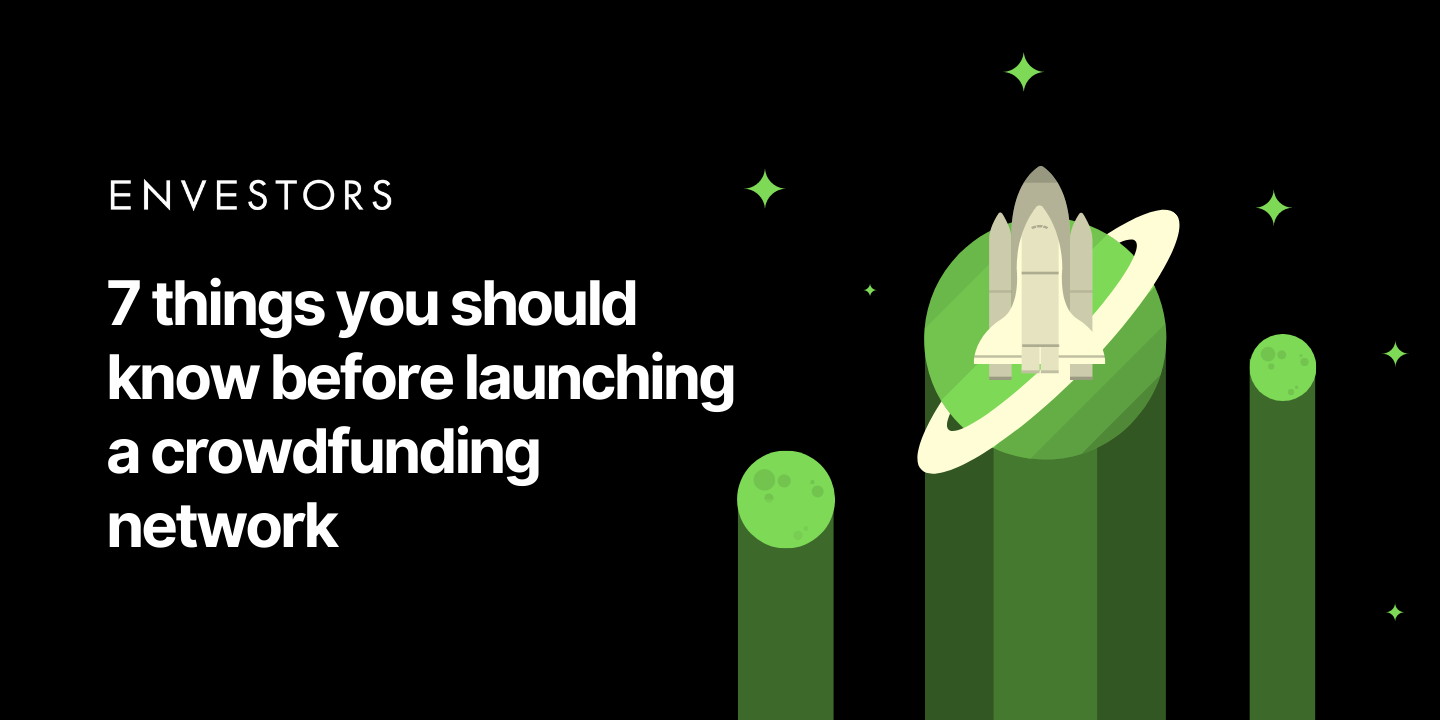7 things you should know before launching a crowdfunding network
Online angel investing doesn’t work.
High net worths don’t do things online.
We’ve all heard these age-old adages, but, upon closer inspection, do they hold up?
A study by PWC showed that 98% of HNWIs use the internet daily. They don’t just use the internet, they spend 3 hours a day on it.
Crowdfunding has taken investing in startups and SMEs to a new level, giving companies a platform to fund their products and amateur investors the ability to support their favorite brands.
Thousands of companies raise funding every year. Even with a few established crowdfunding sites out there, there’s always room in the market for more niche platforms.
In order to make your mark, your best bet is to focus on niche markets, emotive causes like the environment, underserved regions or niche sectors like crypto.
However, building your own crowdfunding platform takes preparation and knowledge of your target market, investor expectations and relevant legislation.
Getting lost in the many requirements of setting up a crowdfunding site is easy. In order to soldier through, we’ve prepared a list of 7 things you should know before planning your launch:
1. Managing an investment network is resource-intensive
This takes us to our first point – it’s easy to underestimate how many resources you are going to need to be successful.
Don’t expect to be able to do everything yourself. Growing a crowdfunding site requires planning, networking and marketing skills as well as legal and technical acumen.
At the very least, your team will need to include legal and corporate finance experts, marketing and sales professionals, and investor relations managers.
These do not all need to be full-time resources and some can be outsourced, but to ensure all your bases are covered, think through the end to end journey for each of the players – your investors and the companies – and ensure you have resources in place to ensure the journey is a smooth one.
2. You will need to choose a niche
Before starting out, research and identify what gap you are filling in the market. Competing with large, established crowdfunding sites is going to be an uphill battle. You are better off focusing on a niche in which you have the right experience and black book.
Choosing the right niche or sector is essential to set you apart from the competition and leverage the support of passionate backers. Choose a niche you’re familiar with and focus on marketing and business development.
3. Regulatory cover is essential
Many crowdfunding sites fail because they don’t comply with relevant legislation. You will need to make sure your platform is secure and ensure that it complies with whatever regulation applies wherever it operates – in the UK that’s dictated by the Financial Conduct Authority (FCA).
All regulated crowdfunding platforms will need to register and qualify its investors. Investors must understand the risks they are taking and only be presented with certain classes of opportunity, which have been certified by a regulated entity as appropriate.
Personal data must be managed in accordance with GDPR and any funds that are transferred must meet anti-money laundering (AML) requirements.
4. It takes time to build your investor network
Finding backers is no walk in the park. You’ll need to leverage not only your own, but also your clients’ contacts to get your deals funded.
As you build out a network of investors, they will need regular checking in, direction, answers and support.
Make sure you choose the right tech that works with you to constantly update your network of existing investors on new deals and developments from companies you’re currently raising funding for.
Also, remember to make sure they also get regular updates on the investments they’ve already made with you – they’ve made a medium to long-term commitment and want to be kept abreast of how their companies are doing.
5. You need to be able to spot a good deal
Which takes us to our next point. The best way to peak investors’ interest is by choosing and promoting ‘good‘ deals.
How do you know which ones are good? A corporate finance expert will review traction and financials, and analyze deal structure to ensure it’s beneficial for investors.
Valuation plays a big part in how ‘investable’ an opportunity is. You’ll have to benchmark any new company’s valuation against industry stats, to make sure it’s up to scratch.
Also, by focusing on a niche that you understand better than the general market you are more likely to spot what is most likely to work for you and your network.
6. Choose the right tech
Technology will make or break your crowdfunding platform. Unless you have an experienced team of software developers and tech support staff at your disposal, your best bet is going with a tried and tested SAAS product that fulfills your needs.
Choose one that is user-friendly and allows backers to communicate with founders and ask them questions. The platform you’ll use should have an integrated payment gateway for transactions fees on campaigns on the site. Choose one with low transaction fees and availability in the countries you’re targeting.
7. You don’t need to do it alone
Choosing the right partner is key to the success of your crowdfunding platform. Your best bet is choosing a partner that not only provides the technology and support you need to set up your crowdfunding site, but can offer guidance and support throughout.
With more than 15 years of experience, the team at Envestors can guide your through compliance, corporate finance and investor relations. We built out Envestry for Networks to allow networks to seamlessly post deals and share them with investors.
We provide regulatory cover, an investor relations portal to get the right deals in front of the right investors, a raft of investor and company update and engagement tools, investor pledging and payment and a constantly evolving platform that shares learning from all our partners.
